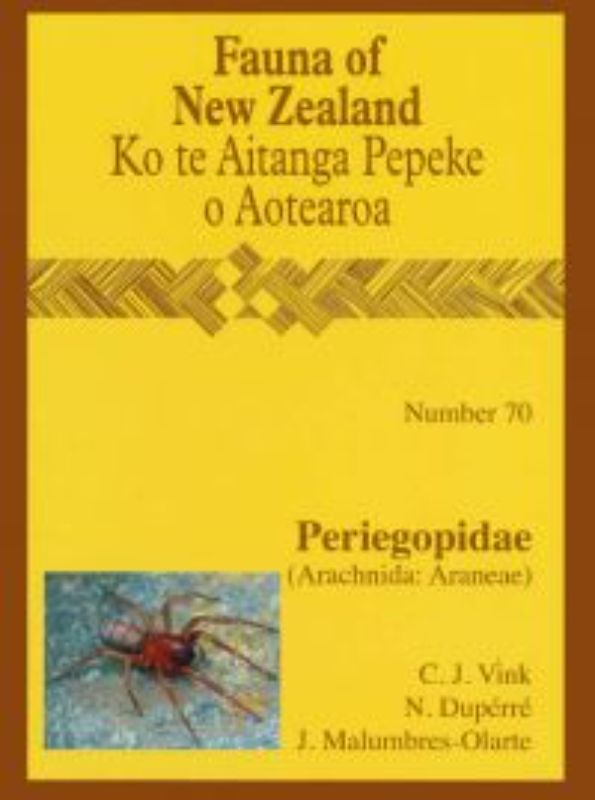FAUNA OF NZ 70 PERIEGOPIDAE
Dive into the captivating realm of arachnology with FAUNA OF NZ 70 PERIEGOPIDAE, an essential resource for enthusiasts and researchers exploring New Zealand's unique biodiversity. This comprehensive paperback guide by C. Vink, published by Manaaki Whenua Press, details three rare species from the Periegopidae family, exclusively found in the distinct ecosystems of New Zealand and Queensland, Australia. Discover the fascinating characteristics of Periegopid spiders, including their unusual six-eyed anatomy and predatory behavior on the forest floor. The book meticulously illustrates the genus Periegops, featuring descriptions of P. suterii and its newly identified counterpart. With stunning habitus images and geographical distribution maps, you will gain invaluable insights into these elusive creatures inhabiting select relict forests, such as those on Banks Peninsula, Riccarton Bush, Aldermen Islands, and East Cape. Learn about the habitat requirements of these spiders, which thrive in well-drained soils enriched with leaf litter. This scholarly work is not only a morphological exploration but also offers a molecular phylogenetic analysis that reveals the relationships within the species. Perfect for both researchers and students, FAUNA OF NZ 70 PERIEGOPIDAE stands as a definitive guide for those passionate about New Zealand's native fauna, making it a must-have addition to any arachnology collection.
Delivery Information
Delivery Information
Delivery takes 3-12 business days after dispatch from our fulfillment center, unless stated otherwise. In most cases, your order will arrive before the 12-day mark; however, some items may take up to the full 12 working days.
Payment & Security
Payment methods
Your payment information is processed securely. We do not store credit card details nor have access to your credit card information.


